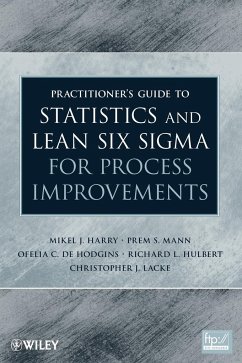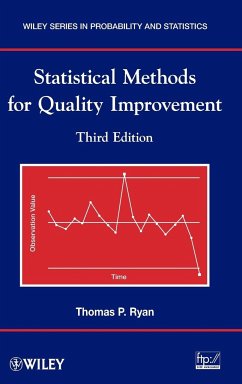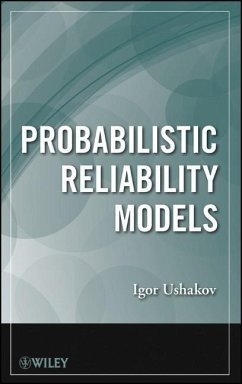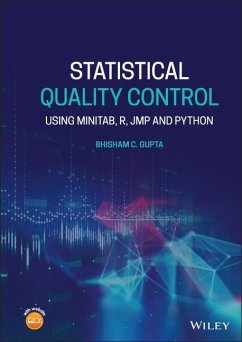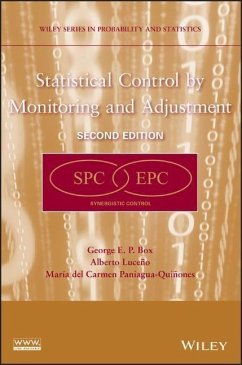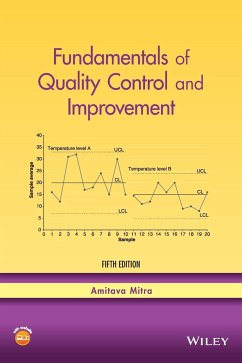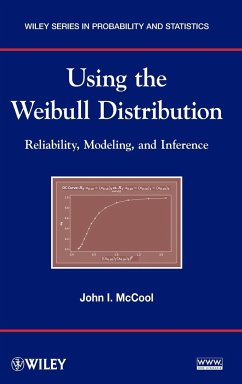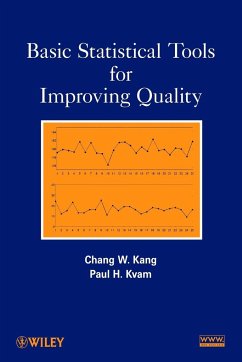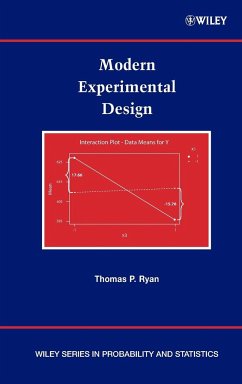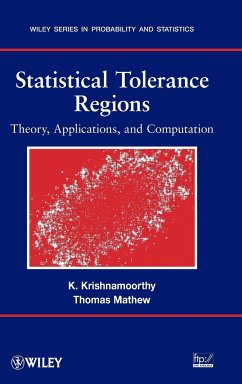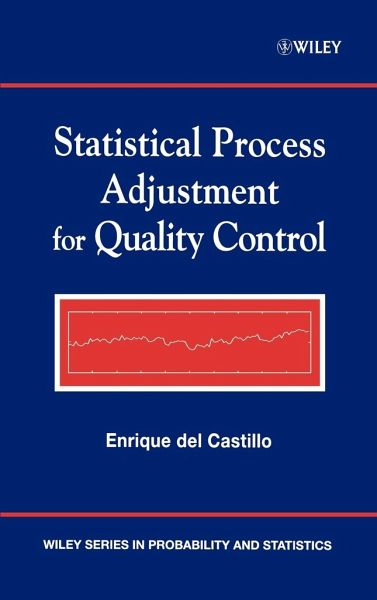
Statistical Process Adjustment for Quality Control
Versandkostenfrei!
Versandfertig in über 4 Wochen
197,99 €
inkl. MwSt.

PAYBACK Punkte
99 °P sammeln!
Quality control is a major concern of industry. The best method for ensuring proper quality is to establish process adjustments. This technique uses statistical analysis to alter the manufacturing process in order to maximize product quality. This book presents statistical methods for process adjustment (Engineering Process Control Methods, or EPC), and their relation to the classical methods of process monitoring, particularly with SPC control charts.
A comprehensive presentation of control theory for the SPC community
Quality control has become a major concern in today s competitive industrial environment, and industrial engineers are constantly seeking to make process adjustments that will optimize production efficiency and improve product quality. Statistical Process Adjustment for Quality Control fills the need for a comprehensive presentation of control theory at the elementary level, focusing on statistical methods used in process adjustment (Engineering Process Control Methods or EPC) and their relation to the classical methods of process monitoring, particularly those using SPC control charts. The author presents the severe effects of autocorrelated data on control chart performance and advocates the use of active adjustment methods for improving the quality of products and processes. He uses a detailed explanation of Deming s funnel experiment to illustrate the need for process adjustment when there are process dynamics, and presents an in-depth description of ARIMA models and Transfer Function models from a statistical point of view. He offers several adjustment strategies, including Minimum Variance Controllers, PID controllers, EWMA controllers, deadband policies, and constrained variance controllers. The book also offers integration strategies for SPC and EPC methods, discusses multivariate ARMAX models used for multivariate adjustment, and provides readers with a brief introduction to frequency domain and state-space methods.
Statistical Process Adjustment for Quality Control is a timely resource for students, industrial engineers, and applied statisticians in both academic and industrial settings. Unique features include:
A strong focus on quality control of products and processes
Broad coverage of SPC, adjustments, and time series under one cover
Abundant examples using both real process data and simulations
Detailed explanations on how to use SAS and MATLAB on an accompanying ftp site
Coverage of spreadsheet simulation and optimization models in Microsoft(r) Excel
Numerous chapter problems and detailed bibliography of relevant literature for further reading
Quality control has become a major concern in today s competitive industrial environment, and industrial engineers are constantly seeking to make process adjustments that will optimize production efficiency and improve product quality. Statistical Process Adjustment for Quality Control fills the need for a comprehensive presentation of control theory at the elementary level, focusing on statistical methods used in process adjustment (Engineering Process Control Methods or EPC) and their relation to the classical methods of process monitoring, particularly those using SPC control charts. The author presents the severe effects of autocorrelated data on control chart performance and advocates the use of active adjustment methods for improving the quality of products and processes. He uses a detailed explanation of Deming s funnel experiment to illustrate the need for process adjustment when there are process dynamics, and presents an in-depth description of ARIMA models and Transfer Function models from a statistical point of view. He offers several adjustment strategies, including Minimum Variance Controllers, PID controllers, EWMA controllers, deadband policies, and constrained variance controllers. The book also offers integration strategies for SPC and EPC methods, discusses multivariate ARMAX models used for multivariate adjustment, and provides readers with a brief introduction to frequency domain and state-space methods.
Statistical Process Adjustment for Quality Control is a timely resource for students, industrial engineers, and applied statisticians in both academic and industrial settings. Unique features include:
A strong focus on quality control of products and processes
Broad coverage of SPC, adjustments, and time series under one cover
Abundant examples using both real process data and simulations
Detailed explanations on how to use SAS and MATLAB on an accompanying ftp site
Coverage of spreadsheet simulation and optimization models in Microsoft(r) Excel
Numerous chapter problems and detailed bibliography of relevant literature for further reading



